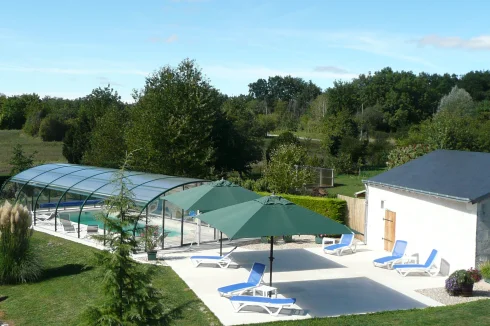France Champion of Annual Holidays
Friday 01 August 2008
The French take more annual leave than any other country on the planet, but a new law, effectively abolishing the 35-hour week, now threatens that crown.
With an average of 37 days leave per year, the French take four days more a year than their nearest rival Italy, according to a recent study undertaken by pollsters Harris Interactive.
The UK trails well behind on 26 days, whilst the Americans cannot seem to leave their desk, with an average of only 14 days leave each year.
It also seems it is the sunnier Mediterranean climates that tend to take more time off, with France, Italy, and Spain heading up the table as the countries with the greatest amount of leave.
The same survey has been undertaken for the past eight years, in every one of which France has remained well ahead of any other country.
France is able to maintain this record in large measure due the ability of many employees who work more than the basic hours in a week to be entitled to take time off in lieu of payment.
These in lieu days, called réduction du temps de travail (RTT), are taken in addition to the congés annuels. When they are used in combination, it helps explain one of the reasons for the customary long summer breaks taken by the French.
In addition, French employees are also granted generous time off for family support, as well as 11 public bank holidays, not taken into account in the calculation of the above figures.
Two years ago the French Government tried to reduce the amount of leave taken by their countrymen by abolishing the traditional Whit Monday Public Holiday. However, after millions ignored this ‘day of solidarity’ for the aged, as it was called, the Government caved in and reinstated the bank holiday.
Not only does it seem the French take more leave than anyone else, but they seem less willing to give up any of it for their employer. Whilst the study showed that the Dutch gave up as much as half of their annual leave entitlement to remain at work, only 20% of the French did so. They were only exceeded by 19% of Germans who were unwilling to stay at their desk.
Nevertheless, the present French Government has been nibbling away at the 35-hour week enjoyed by many French employees.
Before the summer parliamentary break a new law was passed, which effectively dismantles the mandatory 35-hour week, giving greater discretion to employers to increase the hours, and reduce the ability of employees to take their RTT.
Whilst the 35-hour week remains the point of reference, the duration of the week can be varied by local agreement, with employers only requiring a minimal level of employee approval to any change. Indeed, if they so wished, employers are now entitled to negotiate on an individual basis with employees, even if a local collective agreement is in place.
Even public holidays can now be the subject of negotiation at the workplace, save for the 1st May, which remains consecrated in the Code du travail as a mandatory public holiday.
Whilst the change affects everyone, it is probably more severe for middle managers, whose working time will be measured less in the number of hours they work each week, than in the number of days they work in the year, which could be up to a 282 days, the maximum permitted under European laws.
Moreover, whilst the international press often makes a great deal of the 35 hour week ostensibly enjoyed by French workers, in fact, only a minority have ever enjoyed the privilege. The average number of hours worked by the French worker in 2007 was 38 hours per week. There are also many employees on part-time contracts, or on contracts that are for a fixed term. French employment contracts are far more precarious than is often believed.
Thank you for showing an interest in our News section.
Our News section is no longer being published although our catalogue of articles remains in place.
If you found our News useful, please have a look at France Insider, our subscription based News service with in-depth analysis, or our authoritative Guides to France.
If you require advice and assistance with the purchase of French property and moving to France, then take a look at the France Insider Property Clinic.





